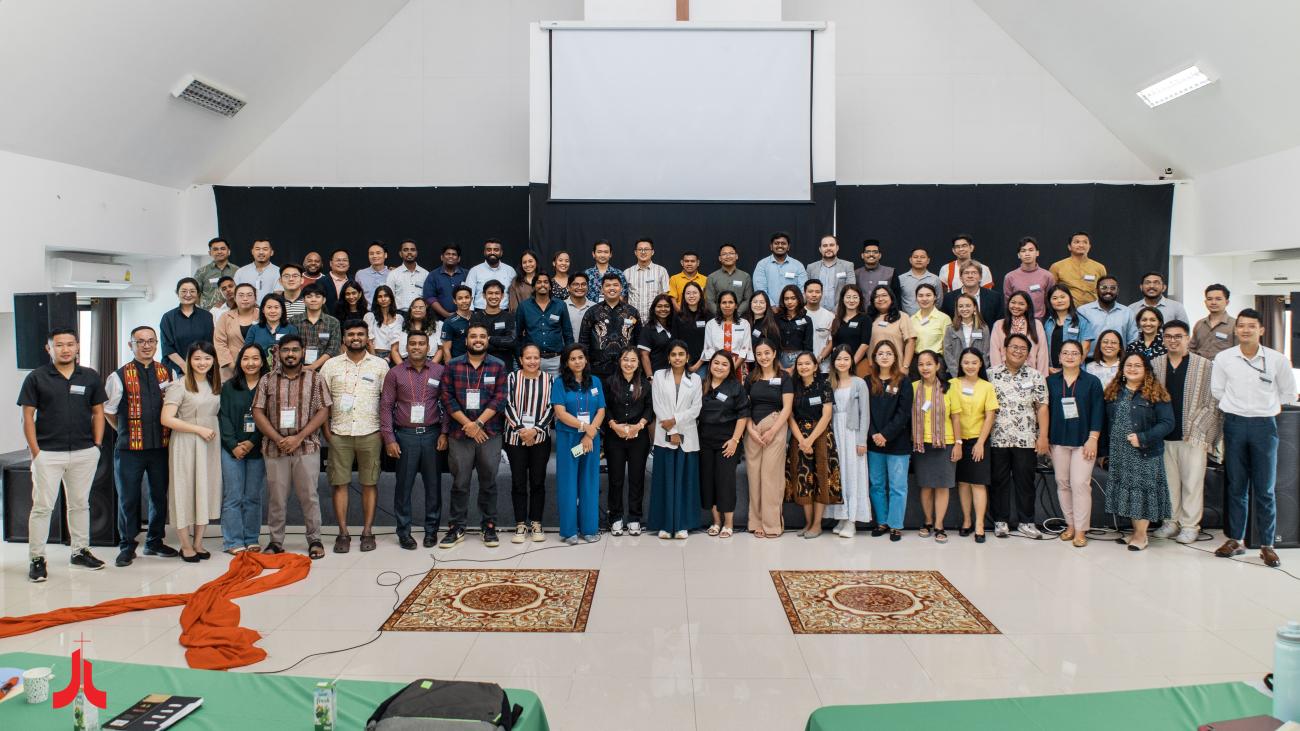Capacity building training for young Christians to enhance HIV Advocacy in Asia

Chiang Mai, Thailand: The Christian Conference of Asia’s (CCA) Regional Capacity Building Programme ‘Strengthening the Voices of Youth for HIV Advocacy in Asia’ has commenced in Chiang Mai, Thailand with over 70 participants representing churches from across Asia.
The three-day capacity building training, organised through CCA’s Action Together in Combating HIV and AIDS in Asia (ATCHAA) programme, aims to equip youth to be change-makers in their communities and respond effectively to the issues of HIV and AIDS.
The CCA General Secretary Dr Mathews George Chunakara, in his opening address delivered online, said that the creativity, innovation, and capacity of young people to bring change in the world are widely accepted. He noted that young people are a diverse population, and the specific challenges they face when dealing with HIV and sexual and reproductive health services must be acknowledged.
“The effectiveness of programmes and interventions targeting young people can only be ensured with the full participation and involvement of young people in their design, monitoring and implementation. This capacity building programme, with the participation of young people from across Asia, is yet another important milestone in CCA’s numerous efforts and initiatives to combat the widespread menace of HIV and AIDS”, said the CCA General Secretary.
HIV and AIDS have been a special focus of the Christian Conference of Asia’s programme priorities. Several skill building and advocacy programmes have been initiated by CCA to address these concerns and to build HIV-competent churches and communities in Asia.
Dr Mathews George Chunakara further added, “This is going to be a unique opportunity and platform to share best practices across Asia and develop the capacity for effective engagement of young people in HIV advocacy. We hope that that this programme will equip young leaders like you to gain knowledge, insight, and encourage HIV and AIDS advocacy initiatives at local and sub-regional levels.”
Rev. Grace Moon, CCA Programme Coordinator, welcomed the group and gave a brief introduction to the history and the structure of the Christian Conference of Asia, its vision, and the four main programme areas.
Dr Ronald Lalthanmawia, CCA Programme Coordinator for ATCHAA, stressed that there needs to be an Asian response to the HIV and AIDS situation in Asia, and young people need to be empowered to lead this response. He emphasised, “The voice of youth is the change-making voice and it is extremely effective.”
The Asia and the Pacific region is home to over 600 million youth aged 15-24. According to UNAIDS data, the HIV and AIDS epidemic among youth in this region is increasing. About 6.5 million individuals live with HIV, with 300,000 new infections reported in 2022, as per the 2023 UNAIDS report.
Participants of the three-day capacity building programme will learn about the current HIV and AIDS situation in Asia, strategies to reduce stigma and discrimination, and ways to create safe spaces. They will also take part in exposure visits to different HIV projects in Chiang Mai, and create an action plan for regional and national advocacy initiatives.
For more photos, please click here: (Photo Gallery): Regional Capacity Building Programme ‘Strengthening the Voices of Youth for HIV Advocacy in Asia’










